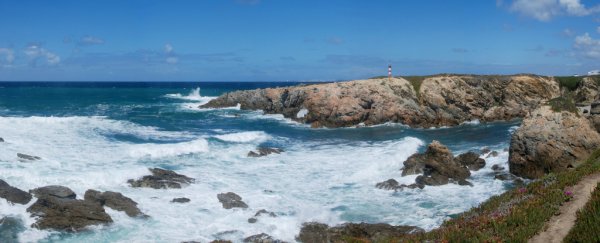Forging a new path for US energy dominance, the Trump administration has proposed a controversial new plan that would expand offshore drilling along nearly the entire US coastline.
Environmentalists, scientists and lawmakers have protested the "egregious" plan on both environmental and economic grounds.
Now, a new report suggests that if the proposal passes into reality, the future of 68 national parks, scattered along the coast, will be put in grave danger.
"America's coastal national parks, from Maine to Florida, California to Alaska, could face serious repercussions from the Trump Administration's misguided plan," the report reads.
The US coastline extends for over 12,000 miles (19,000 kilometres), encompassing rich ecosystems, untouched beaches, unique wildlife, and a number of iconic national parks.
The report, published by the National Resource Defense Council (NRDC) and the National Parks Conversation Association (NPCA), describes in worrying detail what could happen to this rugged coastline if offshore drilling is expanded.
The impact of climate change on national parks has been well studied: forested parks are burning, desert parks are drying up, alpine parks are melting and coastal parks are sinking at unprecedented rates due to human activity.
Among the damages reported, the offshore proposal could ruin fisheries, soil the habitats and migratory pathways of whales and dolphins, threaten coastal communities with oil spills, and exacerbate climate change.
This isn't just an environmental issue. In coastal areas, the national parks that could be opened for offshore drilling generated over $5 billion in economic output in 2017, supporting nearly 60,000 jobs.
In California, where coastal national parks provide nearly $100 million in economic output, the report found that no less than 10 national parks are under threat from offshore drilling.
 (NPCA and NRDC)
(NPCA and NRDC)
"With landscapes covering woodland forests, mountain ranges, and sunny coasts, California's coastal parks would be devastated by an oil accident," the report concludes.
History has shown us how disastrous oil spills can be. Just eight years ago, Deepwater Horizon leaked more than 171 million gallons of oil into the Gulf of Mexico, contaminating huge swathes of ocean and beaches, destroying plants and wildlife, and costing around $65 billion in damages.
After the spill, the Obama administration introduced new oil rig safety regulations. But just like the offshore drilling plan, the Trump administration has proposed rolling back this Obama-era policy as well.
If nothing else, the report highlights just how little science informs the Trump administration's policies.
While many coastal states turned over data that clearly illustrated why offshore drilling would be detrimental to their region, the state of Florida, home to Mar-a-lago, failed to do the same and was the only coastal state given an exemption.
Earlier this year, three-quarters of the US National Park Service advisory board stepped down, citing Interior Secretary Ryan Zinke's refusal to meet with them or listen to their scientific counsel.
The news came shortly after President Trump proposed shrinking two Utah national parks to make way for oil and gas drilling.
"We must not place our national parks at risk for something as dangerous, unpopular, and damaging to our climate as offshore drilling, yet that's just what the Trump Administration threatens to do," the report concludes.
Just add the NRDC report to a bunch of inconvenient science the Trump administration would rather ignore.
The report has been published by the NRDC.
Science AF is ScienceAlert's new editorial section where we explore society's most complex problems using science, sanity and humor.
